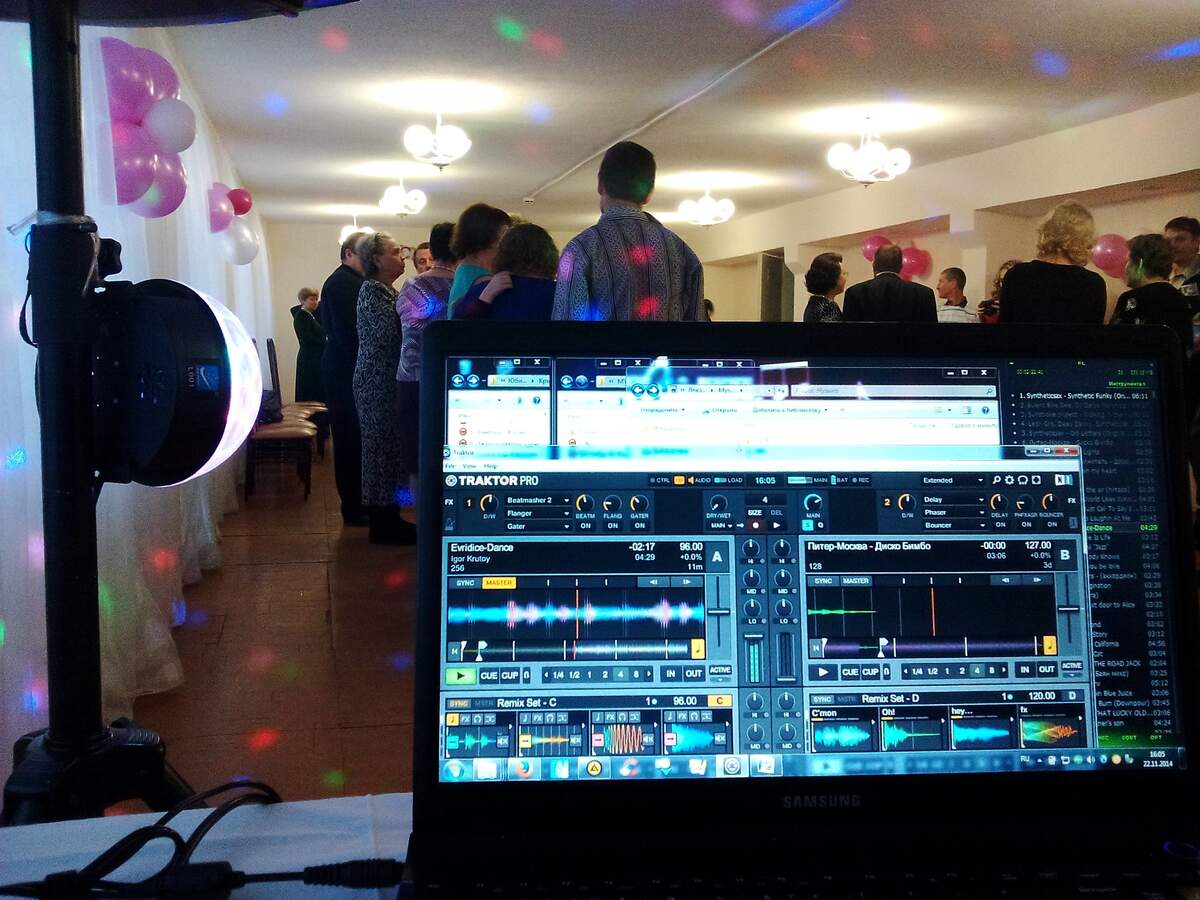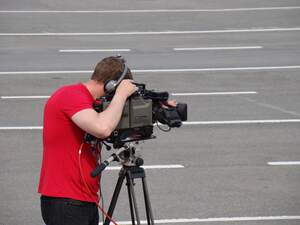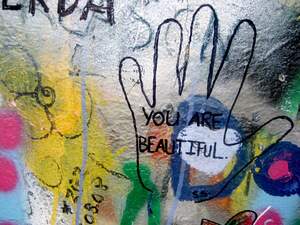

National Disc Jockey Day
Also known as
National DJ Day
Observed
annually on January 20th
Dates
Hashtags
Sources
http://www.nationaldjday.com/
https://blastfromyourpast.wordpress.com/2013/01/16/wolfman-jack-turns-75-national-dj-day-half-price-books/#more-178
https://en.wikipedia.org/wiki/History_of_DJing
https://en.wikipedia.org/wiki/History_of_radio_disc_jockeys
https://www.anrdoezrs.net/links/100298379/type/dlg/https://www.newspapers.com/image/608751476/
Today we remember and celebrate those who keep us humming, tapping our feet, and dancing throughout our days. Disc jockeys, also known as DJs, entertain by playing recorded music. Traditionally, DJs have spun vinyl records on turntables, but many other formats are used, such as CDs and stored digital audio files played on CDJs and laptops. There are radio DJs, club DJs who play music at nightclubs and music festivals, and other mobile DJs who play music at events such as weddings and school dances, among others. Some DJs are also turntablists who manipulate the sounds on vinyl records, to create their own music. National Disc Jockey Day is held on the anniversary of the death of legendary radio DJ Alan Freed, who passed away on January 20, 1965.
Although radio DJs existed in the first half of the twentieth century, and the term "disc jockey" came about in the 1930s, it wasn't until the 1950s that DJs came into their own. Radio DJs were at their height in the 1950s and 1960s, with the rise of rock and roll and what is considered the "golden age" of Top 40 radio. These DJs brought rock and roll to larger audiences, and initially had more control over what was played, infusing their playlists with their own unique tastes, instead of following station playlists. They bookended songs or a series of songs with comments, information, jokes, announcements, and commercials, before launching into another set.
Alan Freed introduced the term "rock and roll" to radio listeners and was the first to play the music on-air at a major station, at WJW in Cleveland. Notably, much of the music he played was made by African Americans but was listened to by a largely white audience. He was at his peak when he left Cleveland in 1954 and came to WINS in New York. A dark spot in the first decade of radio DJs, especially for Freed, was the payola scandal, where DJs received payment from record companies to play songs on the radio. This undercut the belief that DJs were playing music based solely on their passion for the songs, and following the scandal, DJs by and large lost creative control of their playlists, which left control to program managers. Freed's career never recovered following the scandal.
In the early 1960s, Wolfman Jack howled and growled from a "border blaster" station just over the border in Mexico. XERF had 250,000 watts of power that brought his iconic voice and the songs he spun thousands of miles across the United States. Later in the decade, Wolfman Jack joined XERB. This time he was able to record his shows at a studio in Hollywood and send the tapes over the border to be broadcasted. Other notable radio DJs of the era were Casey Kasem, Dewey Phillips, John Peel, Don Steele, and Murray the K. Although it was mainly a male-dominated career at the time, there were female DJs, such as Alison Steele at WNEW-FM in New York City. The prominence of radio DJs waned with a move from the AM Top 40 format to an FM album-oriented rock format, although there were still some notable DJs with the rise of FM, such as Allison Steele and Tom Donahue. The era of DJs also waned on account of the rise of news and call-in radio shows.
Club DJs got their start in the 1950s when local and regional radio DJs began hosting teen dance parties called sock hops or record hops. Radio stations or stores often sponsored the hops in order to promote their DJs or to sell records. DJs usually spun hit singles that were on 45-rpm records, just as they did on air. Originally, club DJs had one turntable and talked between songs, but they then moved to two turntables so they could seamlessly transition from one song to the next. The first to do this was Bob Casey in 1958.
In the 1960s, club DJs spun records in nightclubs and discothèques, which grew in popularity in the United States and Europe during the decade but lost prominence by its end. Mobile DJs spun records at block parties that emerged in the 1970s. The parties were popular in New York City and were modeled after the Jamaican sound systems of decades past. Not only were songs played at these block parties, but they ushered in the dawn of experimentation with turntables—the manipulation of sound and the creation of music with them—which is called turntablism.
The Technics SL-1200 turntable debuted in 1974 and became the standard for DJing. By the mid-1970s, DJing became an important component of hip hop music and culture, which came out of the African American and Latino communities in New York City. Disco music in the mid-1970s led to a reemergence of discothèques in the United States and Europe, but they went out of style again in the early 1980s. Around the same time, electronic dance music influenced by disco, called house music, which essentially is disco music with drum machine beats, was born in Chicago. DJs created and played this music and related types that followed. New York garage house soon came on the scene, and techno, which is electronic music with synthesized beats, came out of Detroit clubs in the mid-1980s. The rave music scene thrived in the 1990s, with touring celebrity DJs emerging from it.
The MP3 debuted in 1992, and internet radio stations soon arrived, which could be listened to anywhere and which were operated by computer DJs. Shortly after the turn of the century, the ability for MP3 files to be controlled through time-coded vinyl records arrived, and digital vinyl was born. In the midst of all the changes in DJing throughout the years, from the changes in locations where DJs worked to the changes in musical styles, to the changes in DJ equipment, the DJ has remained behind the controls. We remember and celebrate them today on National Disc Jockey Day!
How to Observe National Disc Jockey Day
There are many ways the day could be spent:
- Listen to some Wolfman Jack archives from XERB, to Little Steven's Underground Garage, or to a DJ on a radio station of your choice.
- Watch a film that focuses on DJs or DJing such as American Hot Wax, Mr. Rock 'n' Roll: The Alan Freed Story, American Graffiti, Scratch, What We Started, or Good Morning, Vietnam.
- Go to an event that has a live DJ, such as a dance at a club.
- Host an event and book a DJ for it.
- Get yourself on a path to become a DJ. If you wish to be a radio DJ, look into schooling opportunities and reach out to local radio stations to see if they will take you on as an apprentice. If you wish to be a club or mobile DJ, buy some equipment such as a PA system, turntables, CDJs, mixer, and vinyl records.
- Read a book about DJing such as Last Night a DJ Saved My Life: The History of the Disc Jockey, Blast From Your Past! Rock & Roll Radio DJs: The First Five Years 1954–1959, Rock & Roll Radio DJs: The Swinging Sixties 1960-1969, or 45 RPM: The History, Heroes, and Villains of a Pop Music Revolution.
- Subscribe to Mobile Beat or DJ Times.





















